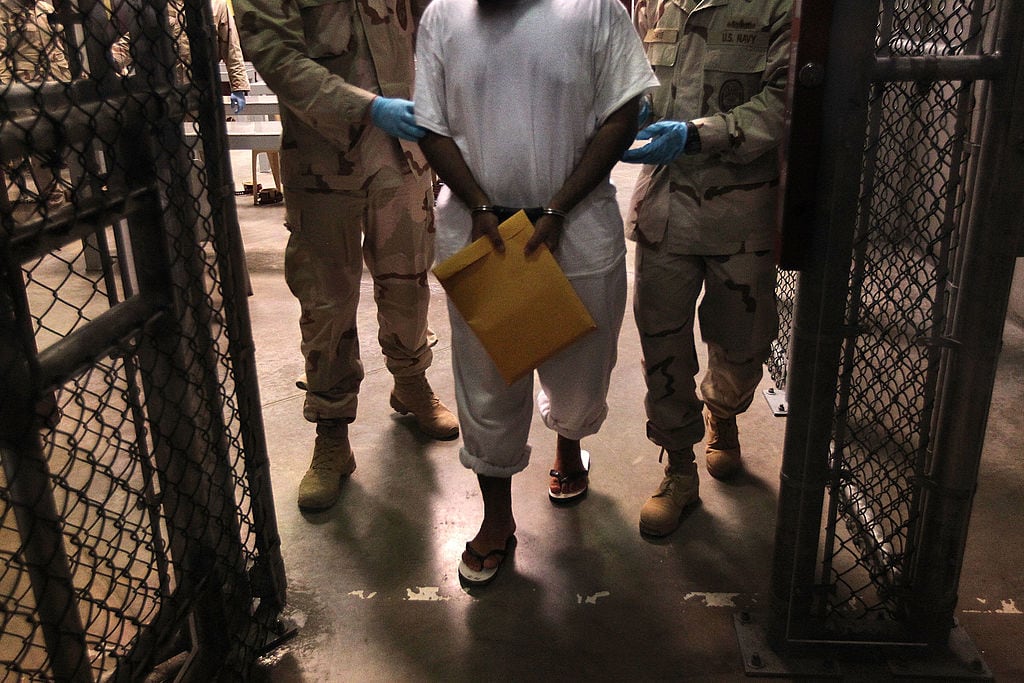“They claimed they saved lives but what they really did was make it impossible to prosecute a mass murderer because of what they did to him…”
In Amazon’s new movie, “The Report,” these are the words of the Senate staffer leading the congressional investigation of the rendition, detention and interrogation program the CIA initiated in 2002.
“They” are the CIA. And the man (men) to whom he refers, were believed to have committed serious crimes — the terrorist attacks of 9/11, the 2000 bombing of the USS Cole — and possibly hold valuable intelligence. They were captured by the CIA and their partners, held incommunicado for years in secret “black sites,” and subjected to what the courts and most people, if they knew the details, would call torture.
The Senate intelligence committee began investigating the program in 2007. In 2014, a summary of the report became public. Based upon the CIA’s own records, the investigation firmly concluded the CIA interrogations were far more brutal and rash than the CIA had depicted to the people who authorized their actions.
The movie portrays an investigation that concluded half a decade ago, and begins with events that began a decade and a half earlier. This might feel like history. It isn’t. The government’s attempts to cover up torture didn’t stop when the executive summary of the Senate report came out.
Despite having made it “impossible to prosecute” men the U.S. government secretly held and tortured, the government is trying anyhow, right now, in a “justice” system crafted for this purpose: the military commissions currently underway at U.S. Naval Station Guantánamo Bay.
These military commissions are committing affronts to the rule of law that would cripple any normal court case. Throughout these proceedings, the government insists on a form of secrecy disassociated from legitimate concerns about national security. The government withholds or obscures information about torture from defense counsel with top secret clearances, but gives the same information to filmmakers willing to advance the government’s narrative in movies such as “Zero Dark Thirty.” The government strains to keep facts out of proceedings even as they are independently uncovered by journalists and in foreign courts. Lawyers can’t even discuss information with their clients that is crucial to their cases — sometimes even about their own torture.
The military commissions assault our core principles in other ways. The right to effective assistance of counsel includes the right of private consultation with counsel. In the military commissions, the government has turned this on its head. The government has placed moles on defense teams and “legacy microphones” in attorney-client meeting rooms. Defense teams discovered that an intelligence agency had the ability to listen to courtroom conversations, including between defense counsel and their clients, through the microphones placed on defense tables. In another instance, one defendant recognized an interpreter the government had provided his defense team from the rendition, interrogation, and detention program.
The military commissions are shot through with the effects of the torture the United States government employed in the months and years predating these trials. As “The Report” highlights, torture is a poison. Corrosive as acid, it erodes the rule of law as it burns away the protections we treat as sacrosanct in our American system of justice. Instead of showing the world Americans’ commitment to justice, to human rights and to the rule of law, we have ad hoc tribunals meticulously designed to ensure criminal convictions and executions while hiding the government’s own sordid acts.
And so, here we are, almost 20 years after the beginning of the events depicted in the movie. The story continues to unfold, and the costs of torture mount even higher.
Marine Corps Brig. Gen. John G. Baker is the chief defense counsel of the Military Commissions Defense Organization (MCDO). The mission of the MCDO is to provide ethical, zealous, independent, client-based defense services under the Military Commissions Act in order to defend the rule of law and maintain public confidence in the nation’s commitment to equal justice under the law. The views expressed do not reflect the views of the Department of Defense, the United States Government, or any agency or instrumentality thereof.
Editor’s note: This is an Op-Ed and as such, the opinions expressed are those of the author. If you would like to respond, or have an editorial of your own you would like to submit, please contact Military Times managing editor Howard Altman, haltman@militarytimes.com.





